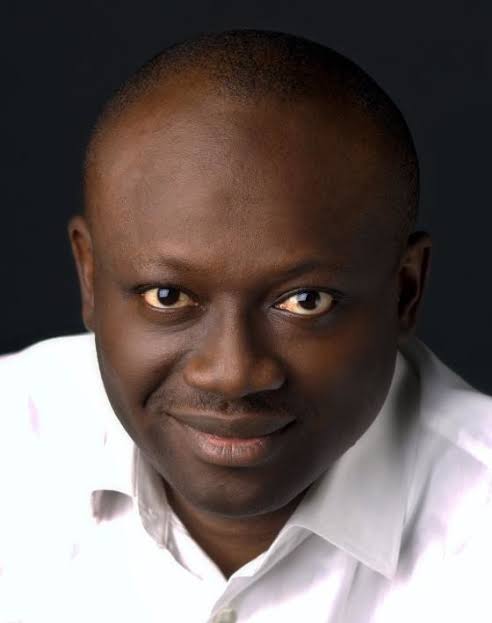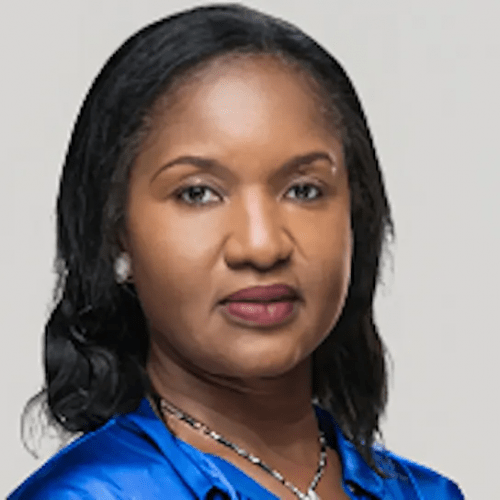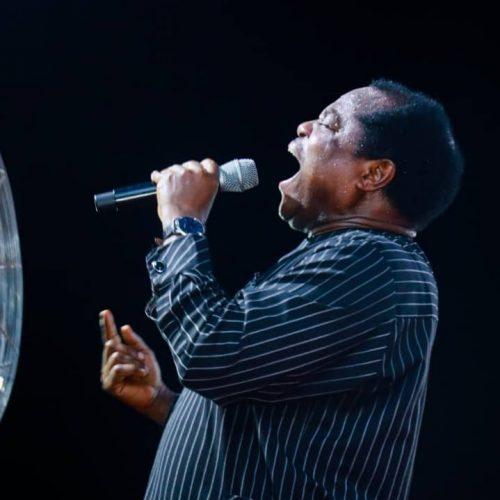Now that we have officially dispensed with all matters relating to the 2023 presidential election, many issues came up along the line which I think we need to pay closer attention to in the interest of consolidating this democracy. It is no longer about who won or who lost — the Supreme Court, the highest court in the land, has declared that President Bola Tinubu won, or that his opponents did not prove that they won. We now need to look at what we have learnt in the process and how these lessons can be useful going forward. My intention is to pick on three issues and offer my thoughts. I do not intend to claim perfect knowledge of the solutions, but I plan to challenge some notions.
The first issue, which kept coming up, is the need to dispense with post-election litigation before inauguration. This is very important. It does not make sense that the disputed winner of an election will be sworn in while the legal battles are still on. This gives the proclaimed winner, in this case the president, an unusual advantage. He has assumed full executive powers over state institutions that are critical to the electoral process. He has taken full control of the treasury. He can do and undo, as it were. His party controls the legislature. If the election is annulled and a fresh one ordered by the court, the acting president will be the senate president, who happens to be from the same party.
Moreover, there will be an uneasy state of affairs if the senate president were to be acting president. For one, he will take over the executive powers and is likely to act in favour of his party. We may end up burning more billions on a fresh election, only to return the same person to office. That would be a monumental waste of resources. More worrisome, for me, are the consequences of a perceived power vacuum while the president steps aside. There will be uncertainties within the power centres. Our democracy may be undermined as we saw with the Interim National Government in 1993. It is not a co-incidence that no sitting president has ever been removed by a tribunal. It is just too risky.
For these reasons, I fully support the motion that election petitions should be fully dispensed with before inauguration. But things are a little bit complicated. If you want to prove that you won an election, you need to gather critical evidence and witnesses to argue your case in court. We hold the general election in February and March. Inaugurations take place in May. That is a gap of two to three months. For a presidential election that holds in 176,000 polling units, 774 local government areas, 36 states and the FCT, the litigants would need a mix of magic and miracle to prove their case within the allotted time. Maybe we can extend the gap to six months by holding elections earlier.
It has also been suggested that we shorten the litigation process. One suggestion is for an electoral court to be set up for election matters only. As things stand, a governorship petition starts at the high court, goes to the appeal court and ends at the apex court; National Assembly starts at the high court and ends at appeal court; and presidential starts at the appeal court and ends at the Supreme Court. Some people think these processes are too long and all matters should start and end at the electoral court. However, I think there should always be room for redress. After all, many verdicts are upturned on appeal. But the truth is that those who eventually lose will still complain of injustice.
For instance, Alhaji Atiku Abubakar, after losing his petition against Tinubu at the Supreme Court, launched an attack on the judiciary. He said the judiciary is the “lost hope” of the common people. When he was winning every case at the Supreme Court in 2006 and 2007, he praised the judiciary. This is so typical of Nigerian politicians. I’m sure Tinubu would have done the same if he had lost. When PDP was in power, any election won by APC/ACN/AC was declared “free and fair” by Lai Mohammed, the opposition spokesman. But if PDP won, it was “rigged”. In 2023, where PDP or LP won, it was “free and fair”. Where they lost, it was “the worst election in Nigeria’s history”. So it goes.
Nevertheless, there should always be room for appeal and all cases should be concluded before inauguration. I still do not think this will solve all problems, but it is very necessary. Yet, there is a counter argument: a ruling party can always use its incumbency to win an election and deploy its power and perks during post-election litigation to favour its candidate, who will then be inaugurated. The problem remains unsolved. Also, if we stretch this argument further, what happens to a sitting president running for a second term? He will still enjoy incumbency during post-election litigation. But I still support the motion that petitions should be concluded before inauguration. It makes sense.
The second issue is the 25 percent threshold as it pertains to the FCT. Section 134 (2) of the 1999 Constitution says: “A candidate for an election to the office of President shall be deemed to have been duly elected where, there being more than two candidates for the election: (a) he has the highest number of votes cast at the election; and (b) he has not less than one-quarter (same as 25 percent) of the votes cast at the election in each of at least two-thirds of all the States in the Federation and the Federal Capital Territory, Abuja.” The Supreme Court has now interpreted that in a presidential election, FCT is to be taken as the 37th state. No state is superior to the other.

This is a commonsense interpretation of the constitution. At no time in our history has any law mandated a presidential candidate to win 25 percent in a particular state to be declared overall winner. The 1979, 1989 and 1995 constitutions — either operational or not — did not place any such requirement. Alhaji Shehu Shagari became president in 1979 and was re-elected in 1983 without winning 25 percent in Lagos state, the federal capital then. If the capital city logic were to apply, it would also mean a governor should win 25 percent of the state capital to be declared winner. The vagueness in the 1999 Constitution was obviously because the FCT is officially not a state.
But there was another commonsense issue: if either Atiku or Peter Obi had won the highest number of votes across the federation and got 25 percent in 30 states, as Tinubu did, and failed to win 25 percent in the FCT, as was the case with Tinubu, would either be satisfied for the election to be declared inconclusive and a run-off ordered? If I were Atiku or Obi, I would argue vehemently that it would amount to miscarriage of justice. But I understand that this is politics and people would deliberately becloud the issues and ignore the logic just to gain an advantage. By the official results, Atiku scored 25 percent in 21 states and Obi in 16 states. Both fell short of the 24 states threshold.
And that is actually the second issue: is it 24 or 25 states? What is “two-thirds of all the States in the Federation and the Federal Capital Territory, Abuja”? What is “two-thirds” of 37? I can see another constitutional crisis in the embryo. It happened in 1979 when we could not define “two-thirds” of the 19 states that we had then. Shagari met the threshold in 12 states, but Chief Obafemi Awolowo filed a constitutional case to argue that it should be 13 states (since humans cannot be fractionalised). The Supreme Court ruled that it should be 12 states plus a quarter of two-thirds of votes cast in the 13th state (which was Kano). This was decided before Shagari’s inauguration.
What is my point, though? The National Assembly must now amend Section 134 (2) (b) of the 1999 Constitution for clarity. It should state clearly that the FCT will be regarded as a state for the sake of calculating the spread requirement. It should also state clearly what two-thirds of 37 states is so that we would not have to start another round of litigation in the future. Ironically, the late Prof Bala Usman raised the issue of “two-thirds of 19 states” at the 1978 Constituent Assembly that debated the draft of the 1979 Constitution. Nobody took him seriously but he included it in the minority report. It became the biggest issue of the 1979 presidential poll and made a small dent on it.
The third issue for me is “how to win an election petition”. The Supreme Court gave enough “expo” on that: don’t just say you won an election and were cheated; show us how you won. Show us that in State X, you polled 800,000 votes but your tally was unlawfully reduced to 100,000. Tabulate it. Back it with copies of the result sheets signed by the officials and your agents at the polling units. Show evidence that the figures on the result sheets given to your agents are different from the results announced by INEC. Show evidence that if the actual votes had been counted, you would have won. The burden is entirely on you to prove that you won and to show how you won. This is vital.
For instance, Obi definitely won in Rivers state from the results uploaded on iRev but his votes were shortened by about 80,000 — which, unfortunately, was not enough to make him the overall runner-up to Tinubu. His supporters said over one million votes were stolen from him in Lagos. It would have been very easy to prove that: just gather all the copies of the result sheets at the 13,000 polling units in Lagos and do an alternative collation and tabulation to show the tribunal that his actual tally in the state was 1,582,454 and not the 582,454 that was recorded against his name. That would have taken him to second position overall. These are lessons for the future, especially with regards to litigation.
In all, I have raised three issues which I believe need to be addressed by those concerned. One, we have to conclude election petitions before inauguration. It is not a super solution but it is absurd to swear in the proclaimed winner of a disputed election while litigation is still on. We need to adjust the election timetable. Two, we need to amend the constitution to clarify the status of FCT in presidential elections and to make it plain what “two-thirds of the 37 states” means. Three, litigants must understand that proving that they are the actual winners can be simplified if they provide alternative tallies based on the result sheets signed by their agents. There is a lesson for everyone.
AND FOUR OTHER THINGS…
WHAT A YACHT
Nigerians are justifiably livid that the federal government is budgeting to pay for a presidential yacht for N5 billion at a time the majority of our people are groaning under economic hardship accelerated by the inevitable removal of subsidy and devaluation of the naira. Presidency has explained that it is not a “yacht” as we know it but a “naval vessel” for operations in our territorial waters and that the commitment was made by the previous administration. But we were still trying to digest this when Senator Ali Ndume revealed that the yacht is already in the country, even though “we are yet to pay for it”. The naval authorities have also confirmed that the expensive toy is already here. Enjoyment.
MIDNIGHT RAVEN
The Economic and Financial Crimes Commission (EFCC) has decided to put a stop to night raids — apparently in response to the outcry over the mass arrest of students of the Obafemi Awolowo University (OAU). Sting operations are common with security agencies, no doubt. But what we have been witnessing over time is a recurrence of an absolute abuse of people’s rights under the general title of “sting operations”. People are routinely molested. There seems to be an element of voyeurism too as security operatives invade the rooms of ladies who are most likely sleeping naked. We must always remember that these rights abuses fuelled the End SARS uprising. Provocative.
STOPPING SEYI
President Tinubu recently publicly complained about his son, Seyi, gaining undue access into the Council Chambers during a cabinet meeting. Tinubu did well to speak openly, but this is still nothing more than a slap on the wrist. The boy needs to be put in his place. Never since the time of Gen Sani Abacha has any “first son” been in our face like this, with his finger in every pie. Seyi is clearly enjoying the moment too much, but he needs a conversation with himself for his own good. His father will not be president forever and he risks his own future if he keeps walking on our heads. The president should also call Folasade, the exuberant “first daughter of FRN”, to order. Caution.
AND FINALLY…
Joe Ajaero, president of the Nigeria Labour Congress (NLC), was beaten black and blue in Owerri, Imo state, on Wednesday ahead of a planned picketing of the airport over the salaries of civil servants. The police said they only rescued Ajaero from the mob that had attacked him but his fellow activists said it was the police that assaulted him. No matter who is responsible, the fact remains that he was battered beyond recognition — at least from the images we have seen so far. He definitely did not molest himself. In the whole situation, though, Ajaero gave us unusual comic relief while narrating his experience: “Dem beat me o… God must have taken extra time to create me.” Rib-cracking!




















